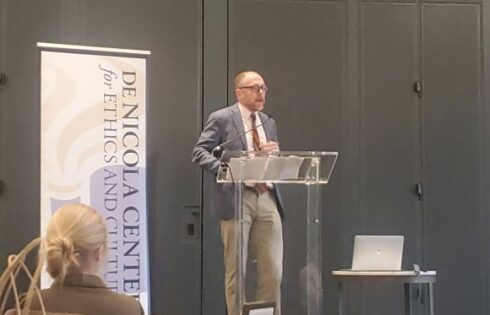The fate of affirmative action in college admissions will once again be decided by the Supreme Court.
On Feb. 21, the court announced it had accepted the case of Fisher v. University of Texas. The plaintiff, Abigail Fisher, claims the University of Texas at Austin had denied her admission on the basis of her being Caucasian, and therefore, not contributing to the school’s diversity requirement.
Fisher claims that since Texas already has the non-racially discriminating “top 10 percent” policy, it is unconstitutional for the university to maintain an additional policy based on ethnicity.
The “top 10 percent” policy guarantees acceptance to all graduating Texas high school students who are in the top 10% of their class.
“There has to be a very good reason for it and there have to be no other possible non-racially classifying ways of achieving the same end,” said Trevor Burrus, legal associate at the CATO Institute. “There’s a theory that the court has never adopted, but it’s been written about in a sense, that affirmative action should be given more of a free pass than other discrimination because affirmative action is nice discrimination.”
In the 2003 case Grutter v. Bollinger, the court ruled that colleges couldn’t use point systems to increase diversity, but were still free to give preferred enrollment to lesser represented ethnic groups on unclear criteria.
How a change would be received by the general student body is uncertain. Though the margin is narrow, a majority of students polled in the past have supported affirmative action.
At Texas A&M University, a group of students led by Tony Listi, alumnus of A&M and employee of campusreform.org, asked students who supported affirmative action if they would be willing to apply the policy to athletics as well. According to Listi, the students were not willing to apply the same policy to sports.
“If merit and ability are the only factors that should be considered in college athletics, then why not also in college admissions, academics, and hiring?” Listi said. “We wanted to expose a double standard that we saw between athletics and academics when it comes to affirmative action.”
Since the policy in question regards the treatment of minorities, it doesn’t surprise opponents of affirmative action that they are sometimes labeled racists by people they claim don’t understand their viewpoint.
“Those charges of racism are merely personal attacks,” Listi said. “They don’t really address the issue of affirmative action. And I would say the opponents of affirmative actions are for true equality and fairness and judging people as individuals based on their merit, abilities and the content of their character.”
The policy has undoubtedly raised the percentage of minorities in colleges, something many see as being a reward worthy of the cost.
“I think it’s ominous,” said Lee Bollinger, the president of Columbia University, in an interview with the New York Times. “It threatens to undo several decades of effort within higher education to build a more integrated and just and educationally enriched environment.”
As former president of the University of Michigan, Bollinger was the defendant in the 2003 case that set the current precedent for affirmative action. Now, as president of UT Austin, Bill Powers will be in largely the same role regarding this case.
“We have a holistic admissions process that helps us serve all of the populations of the state of Texas,” Powers said in a video news release. “It is very narrowly tailored and it follows previous statements by the U.S. Supreme Court on how an admissions process meets our constitutional requirements. And we will continue to make those points as we proceed with this litigation so we can best serve the people of Texas.”
The court will not be hearing the case until Oct. 1 at the earliest, and the final decision is expected to be released some time after that.
With new members on the Supreme Court, it is anybody’s guess which way the decision will go. But thus far, affirmative action opponents and proponents alike have seen this renewed discussion as a sign that the practice may not be in place much longer.
Fix Contributor Ian Hanner is a student at Palomar College.
Like The College Fix on Facebook / Follow us on Twitter




Please join the conversation about our stories on Facebook, Twitter, Instagram, Reddit, MeWe, Rumble, Gab, Minds and Gettr.